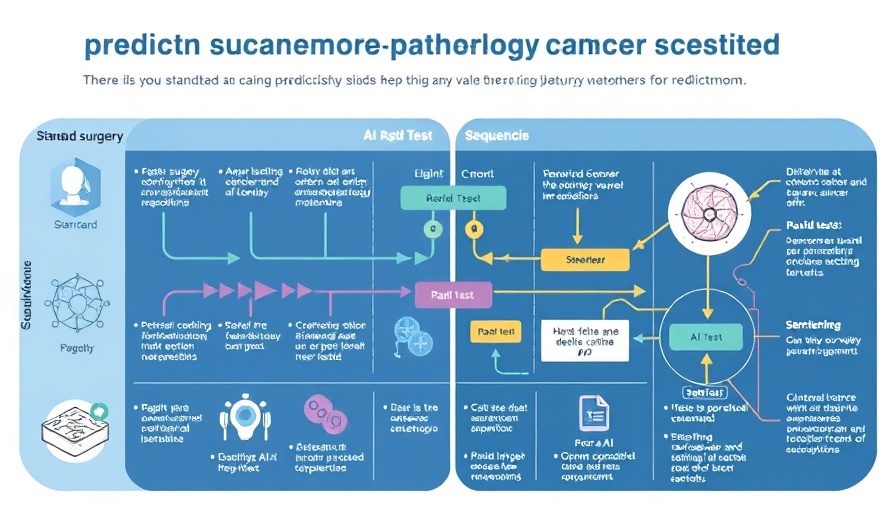
AI Innovations: Transforming Cancer Prognosis
In the rapidly evolving landscape of healthcare, artificial intelligence (AI) stands at the forefront of revolutionary advancements, particularly in oncology. A groundbreaking new AI model has captured attention for its ability to predict cancer mutations directly from routine pathology slides. This innovative approach not only accelerates the diagnostic process but also streamlines treatment decisions, offering immense potential for enhanced patient care.
How the AI Model Works: A Game Changer for Clinics
The AI model analyzes high-resolution images of pathology slides, employing machine learning algorithms trained on a vast dataset of cancer mutation patterns. This methodology allows for highly accurate predictions about mutations that might dictate treatment options for patients. By simplifying complex data interpretation, healthcare providers can make more informed decisions more quickly, a crucial factor in cancer treatment.
Why This Matters to Concierge Health Practitioners
For concierge health practitioners looking to grow their practices, incorporating AI technology can elevate their service offerings. The ability to provide precise, mutation-specific treatment recommendations adds tangible value to patient relationships, which is pivotal in maintaining a competitive edge. Moreover, understanding how to implement this technology can help practitioners navigate the complexities of modern healthcare.
Real-World Applications: Success Stories
Hospitals and clinics that have integrated such AI tools have reported significant improvements in treatment timelines. For instance, facilities utilizing AI-driven pathology methods have decreased the time it takes to finalize diagnostic reports, enabling quicker initiation of targeted therapies. These efficiencies translate to better health outcomes for patients and bolster the reputation of practices that adopt them.
Challenges in Adoption: What Practitioners Should Know
Despite the clear benefits, the adoption of AI in medical settings isn't without hurdles. Many practitioners feel overwhelmed by the technical aspects of implementation and integration into existing workflows. Moreover, securing patient data privacy amidst these technological advances raises ethical considerations that practitioners must prioritize to maintain patient trust.
Future Trends: Embracing AI for Patient-Centric Care
Looking ahead, the intersection of AI and oncology holds promising opportunities for concierge health practitioners. As these technologies become more refined, the ability to tailor treatments based on individual genetic profiles presents a transformative paradigm in patient care. Practitioners who stay ahead of these trends will be well-positioned to advocate for personalized health strategies that resonate with their patient demographics.
Stepping Forward with AI: Best Practices for Practitioners
Implementing AI in oncology practices can seem daunting, but it begins with education. Consider attending workshops or webinars related to AI applications in healthcare. Collaborating with tech solutions providers can also facilitate smoother transitions, ensuring that the technology enhances rather than complicates workflows. By embracing these best practices, concierge practitioners can confidently integrate advanced solutions into their medical offerings.
In conclusion, the emergence of AI models that predict cancer mutations marks a significant leap forward in the realm of personalized medicine. For health practitioners aiming to elevate their practice, understanding and incorporating this technology is essential. Stay informed about advanced solutions in the healthcare sector, and position your practice for a future where innovation paves the way for superior patient outcomes.
Don't wait—explore how AI can impact your patient offerings today and secure your position as a leader in the ever-evolving healthcare landscape.
 Add Row
Add Row  Add
Add 






Write A Comment